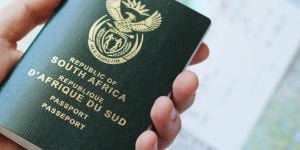Johannesburg is a young, vibrant cosmopolitan metropolis with a diverse population and a fascinating history. Known affectionately as “Jo'burg” or “Jozi” by the 4.4 million people who call it home, the city is the largest in South Africa and the second-largest on the continent.
Johannesburg was founded along the mineral-rich reefs of the Witwatersrand, during a gold rush that attracted thousands of people to the area. Today still, people flock to the economic hub to seek their fortune, and the wealth divide is just as stark.
Although the city has been successful in implementing a number of urban renewal projects, with trendy loft apartments and office developments popping up at a rapid pace, Johannesburg has yet to eliminate its crime and poverty. This offers students plenty of opportunities in research, to get involved in community outreach programs, and to study the challenges experienced by a developing nation, all in a dynamic environment.
Not only does Johannesburg have a lower cost of living than most cities in Europe and the United States, but it also boasts a beautiful natural environment and an electric nightlife. The mild, subtropical climate allows students to enjoy the outdoors while studying. The city's extensive art scene, with numerous libraries and museums, makes for an impressive collection of academic resources.
Teaching culture
Depending on your faculty and level of study, you may be required to complete certain courses or choose your preferable courses to study. Lectures are held 1-2 times a week for each course and while attendance is strongly encouraged, it's usually not compulsory. In weekly seminars ('tuts') or practicals ('pracs'), on the other hand, your presence is required to complete the course. In these smaller meetings, you will have the chance to discuss the course material with your peers and tutor, and ask any questions you might have.
Lecturers are usually available during office hours for consultation should you need to discuss an issue that cannot be resolved in a tut or prac. Some tuts and pracs are given by the lecturers themselves. Lecturers are usually addressed by their qualification (Professor, Doctor, etc.).
A course runs for a semester (one-half of the academic year), either from February to June, or July to November. For each course, you will have to submit essays or assignments and write tests and examinations. The South African credit system is irregular and differs from university to university.
The teaching language
South Africa has 11 official languages, but the primary language of instruction at most education institutions is English. Some courses might be presented in both English and another official language. International students from non-English speaking countries who wish to study in South Africa have to demonstrate their ability in English through one of the following:
- A pass in an examination equivalent to English at the High Grade (First or Second Language) at the South African matriculation level;
- a pass in English at GCE A-level or O-level, or International Baccalaureate or equivalent;
- an IELTS score of at least 7.0; or
- a TOEFL score of 550 or higher.
Johannesburg's main universities
South Africa's education system is focused on helping its graduates achieve an international, multicultural competitiveness while striving to maintain a high level of quality at all times. Johannesburg is home to two top-ranked universities: the University of the Witwatersrand, and the University of Johannesburg.
University of the Witwatersrand
University of the Witwatersrand, commonly known as Wits University, is a premier public research institution in Africa with a 95-year history. It offers a wide range of undergraduate and postgraduate programs that are internationally recognized, and more than 85% of its cutting-edge research, which covers science, engineering, health and the humanities, and is published in accredited international journals.
It's also internationally recognized as a leader in the paleo-sciences and houses one of the largest fossil collections in the southern hemisphere. Wits medical school trains more specialists than any other university in southern Africa and the university boasts four Nobel Laureates, including Nelson Mandela. It ranks 359 on QS's Top World Universities list and is accredited with level 1 status, the highest awarded by the South African Institute of Chartered Accountants (SAICA). With 5 faculties and 33 schools, students have access to over 3,500 courses.
Situated in Braamfontein, Johannesburg, Wits is part of a gentrified, cultural hub that includes trendy Newtown and the historical Constitution Hill. The campus is spread over 400 acres and contains 11 libraries and 17 residence halls. The university also has its own museums, bookstores, banking services, bus services, health care services and a disability support unit. Students can join a plethora of clubs and societies across a range of disciplines, including cultural, academic, business and social.
Wits has over 100 bilateral agreements with other educational institutions around the world.
Find more information on admissions here.
The University of Johannesburg
The University of Johannesburg (UJ). UJ is a young, vibrant, multicultural public university with an unbelievable success story. Just 11 years old, UJ is the first African university admitted to Universitas 21, a highly respected consortium of 28 research-intensive universities around the world.
UJ has conceived an English Language Program to help assist international students to adapt to the demands of using academic English, and as of 2016, offers bursaries to the 50 top-performing international students.
UJ has nine faculties with a range of internationally-recognized flagship programs that include accounting, engineering, law, mathematics, computer sciences, human physiology, optometry, finance, psychology, and teacher education.
In the past 8 years, UJ has injected more than R2 billion into upgrading its living and learning facilities, including introducing tablets and laptops into all first-year classrooms. It also boasts seven South African Research Chairs and is home to six A-rated researchers.
UJ has four campuses located in Auckland Park, Doornfontein and Soweto, each varying in size and character. In total, the university covers 11 acres with a number of facilities, including lecture rooms, micro-laboratories, libraries, health clinics, shopping centres, restaurants and cafeterias, auditoriums and galleries, and sports facilities.
Find more information on admissions here.
Entry conditions
Once you receive conditional acceptance from the university in Johannesburg you wish to attend you must apply for and be granted a study permit from the South African High Commission, Consulate, or Embassy in your country of residence before you leave for South Africa.
The process of applying for a study permit usually takes about six weeks. Once issued, it is only valid for study at the institution for which you've applied. You cannot be registered as an international student until you have been issued a study permit. Find more information on study permits and how to apply for them here.
Cost of Living
With the exchange rate favouring the euro, living in Johannesburg is very cost-effective for international students. In addition to this, most universities offer aid to students finding accommodation that suits their needs, whether it be on-campus residences or off-campus apartments.
South Africa's cost of living is relatively low compared to most cities in Europe. For accommodation, food, utilities and travel in Johannesburg, students can expect to spend less than R10,000 (€688) a month. A meal in an inexpensive restaurant averages R100 per person (€6.8) and a litre of milk costs about R14.60 (€1). Find more comparisons here.
University fees differ from institution to institution, and course to course, but average around R35,000 (€2,408) for a Bachelor of Arts (BA) and R45,000 (€3,096) for a Bachelor of Commerce (BCom).
Scholarships
Financial aid is rarely available to international undergraduate students. Hence, the University of the Witwatersrand encourages foreign students to apply for bursaries from their home countries and governments.
Postgraduate students registered full-time may be eligible for merit awards which are given on the basis of academic excellence. For instance, the University of Johannesburg Academic provides merit bursaries on the grounds of exceptional academic achievement.
Getting around
International students can drive in South Africa with any valid driver's licence, provided that it bears the photograph and signature of the holder and is printed or authenticated in English. Some car rental companies also require an International Driver's Permit (IDP). People drive on the left side of the road.
Johannesburg's public transport system is not as developed as most European nations, but there are a few options available for students without a driver's license. The Gautrain links central Johannesburg with the main business districts in Sandton and Rosebank, and to O.R. Tambo International Airport and the neighbouring city of Pretoria.
Johannesburg's taxi system is unlike most cities in the world. The majority of taxis are minibus taxis, as opposed to metered taxis which are very expensive. Minibus taxis operate in areas not serviced by the city's bus and rail networks. The routes are determined by the drivers and hailing a taxi requires learning a unique sign language. Each route and destination has its own hand signal.
A ride on one of these taxis will make for an authentic South African experience, but students should exercise caution. The vehicles are often unroadworthy and have notoriously reckless drivers.
Things to do
From high-end cocktail lounges to hipster bars, clubs and traditional shebeens (unlicensed drinking establishments), Johannesburg's nightlife has something for everyone. Student hotspots include Braamfontein, Melville, Rivonia and Greenside, all within close proximity to university campuses.
During the day, you'll find students hanging out at Neighbourgoods Market, a trendy weekend bazaar selling craft beer, artisanal food and local crafts; Mary Fitzgerald Square, a cultural complex home to theatres and art galleries; and Melville, the residential area for most Wits and UJ students.
Throughout the year, there are a plethora of festivals, concerts and shows on in and around the city to enjoy.
Local mindset and attitude
South Africa is a culturally diverse country, a melting pot of different ethnicities and languages that is still trying to navigate its way post-Apartheid. In Johannesburg especially, people are street smart and take a no-nonsense approach to life, but are generally very laid back, down to earth, friendly and have a great sense of humour.
We do our best to provide accurate and up to date information. However, if you have noticed any inaccuracies in this article, please let us know in the comments section below.








